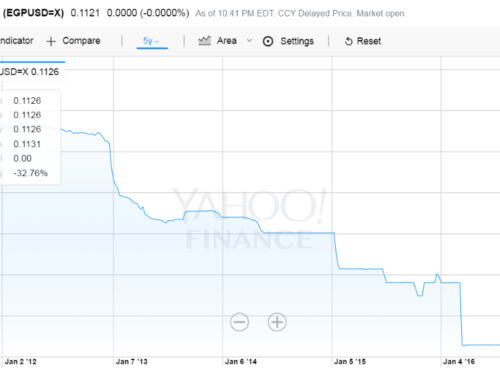Cross-posted in Foreign Policy Mag under the title-
The battle over religion heats up in Egypt
[youtube=http://www.youtube.com/watch?feature=player_embedded&v=KcwozhUOw1o]
“You’re not more Muslim than the rest of us!”
So shouted Parliament speaker Saad El-Katatany at Member of Parliament Mamdouh Ismail. The whole thing happened in Tuesday’s session of Parliament in Cairo. Out of nowhere, Ismail suddenly decided to stand up in the back of the assembly and make the call for prayer, the azan. Loud. Ignoring the speaker’s objection to his disorderly conduct.
Ismail is one of Egypt’s ultraconservative Salafis. Speaker El-Katatny is an MP from the Muslim Brotherhood’s Freedom and Justice Party, so he’s hardly a secularist.
But even to him Ismail’s actions were utterly unnecessary. An irritated Katatny chastised his unruly colleague: “There is a mosque [in the parliament complex] for the call for prayer; this room is for discussion.”
But MP Ismail was trying to one-up everyone else. His previous claim to fame, as journalist Issandr Amrani reminds us, was the lawsuit he filed against businessman and politician Naguib Sawiris for tweeting what he deemed to be an offensive cartoon. So it seems that he needed a new hobbyhorse.
The importance of this incident is twofold.
First, it showcases the difference between the Muslim Brothers and the Salafists. Both are Islamists, adherents of political Islam, and are instrumentalizing religion for political gain. But Salafists, representatives of a more hardline interpretation of Islam, are often more concerned with the superficial expressions of religiousness than with faith: Think strict dress codes, beards, complete gender segregation, and so forth. The Muslim Brotherhood is both more realist and somewhat more amenable to discussion.
Second, it is a reminder that religion sells — and particularly the superficial expressions of it.
Mamdouh Ismail probably has nothing to add to the debate. His only contribution would’ve been a call for prayer and perhaps even a compulsory prayer break, à la Saoudienne.
And it wouldn’t have been a once-off occurrence. Ismail would’ve probably stood up and interrupted discussions every day for the next five years around prayer time.
Experience shows that any remotely religious decisions, even if they’re motivated by pure political opportunism, are impossible to roll back. Egypt, for example, included a reference to Islamic law as the main source of legislation in Article 2 of the Constitution. That amendment wasn’t part of the original version of the constitution passed in 1971; it was added in 1980. By then, President Anwar Sadat — no great fan of religion — was trying to lift term limits so that he could remain in power as long as he wanted, so he needed to neutralize potential pressure from the Muslim Brotherhood and other Islamist groups. Ironic, isn’t it?
Another example is the addition of the words “Allah Akbar” — God is Great — to the Iraqi flag. This was the doing of one Saddam Hussein, another notorious secularist, just days before the Second Gulf War in January 1991. Here, too, his goal was to curry favor with the Muslim world and drum up regional support.
In 2004, when the US occupation administration in Iraq suggested modifying the flag, some of the voices that came out in defense of the existing design did so not out of nostalgia for Hussein’s rule but as a reaction to a perceived American attack on a religious symbol. When the flag was finally changed in 2008, Iraqi lawmakers kept the text but dropped the stars that had adorned the banner since 1963.
And during the run-up to the Egyptian referendum on constitutional amendments in March 2011, Article 2 became the rallying cry for the campaigns by the Muslim Brotherhood and the Salafists — even though said article had already been excluded from revision. The proposed amendments pertained to presidential powers and the president’s term of office, so they had nothing to do with religion. Yet people who rejected the proposed amendments were often branded as “anti-religious.”
The emotional weight of religion, especially superficial expressions of it, is undefeatable.
The whole incident raises one more intriguing question: Does it take an Islamist to catch an Islamist? In other words, had the speaker of Parliament been, say, a liberal MP — would he have been successful at silencing the rowdy MP who breached decorum? Or would said hypothetical liberal MP have found himself silenced by others on the grounds that he was attacking an “Islamic” symbol, namely the call for prayer?
These are worrisome questions, because the answers may suggest that the political conversation is increasingly being drawn to the right, with any religion-flavored subject riling people up to the point of stifling the debate.



